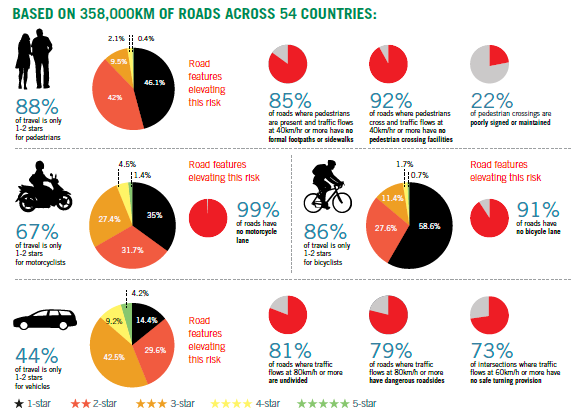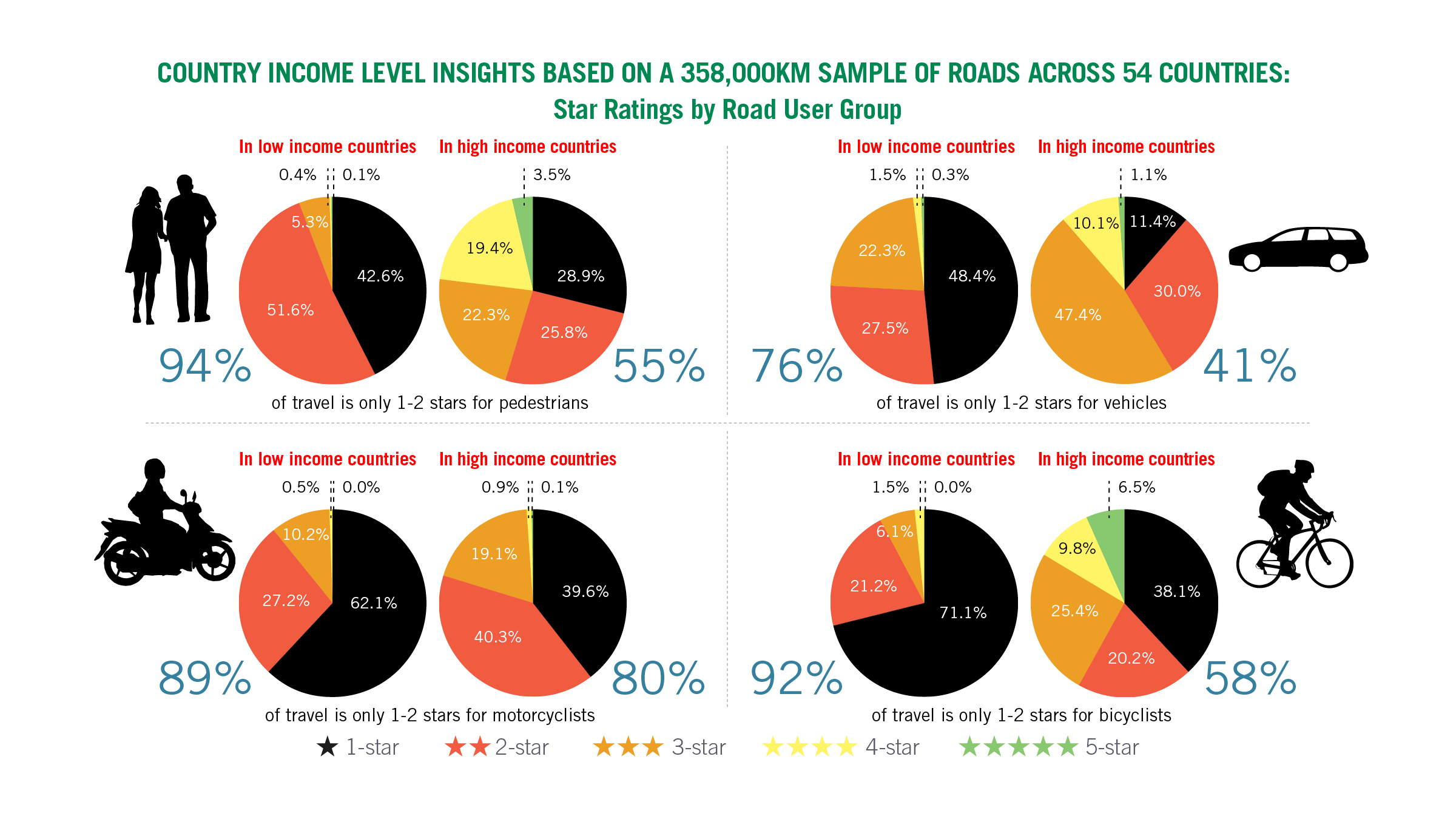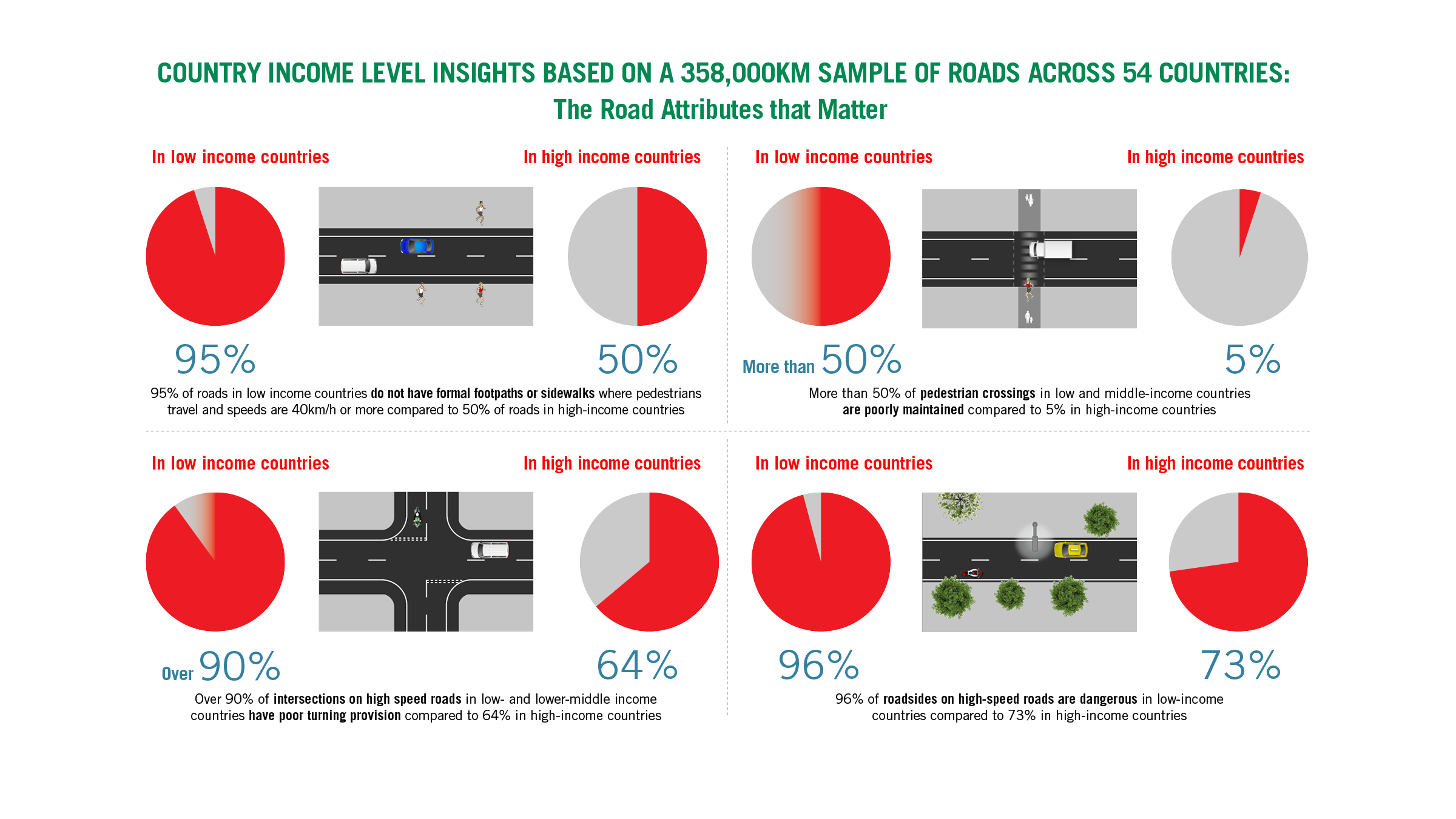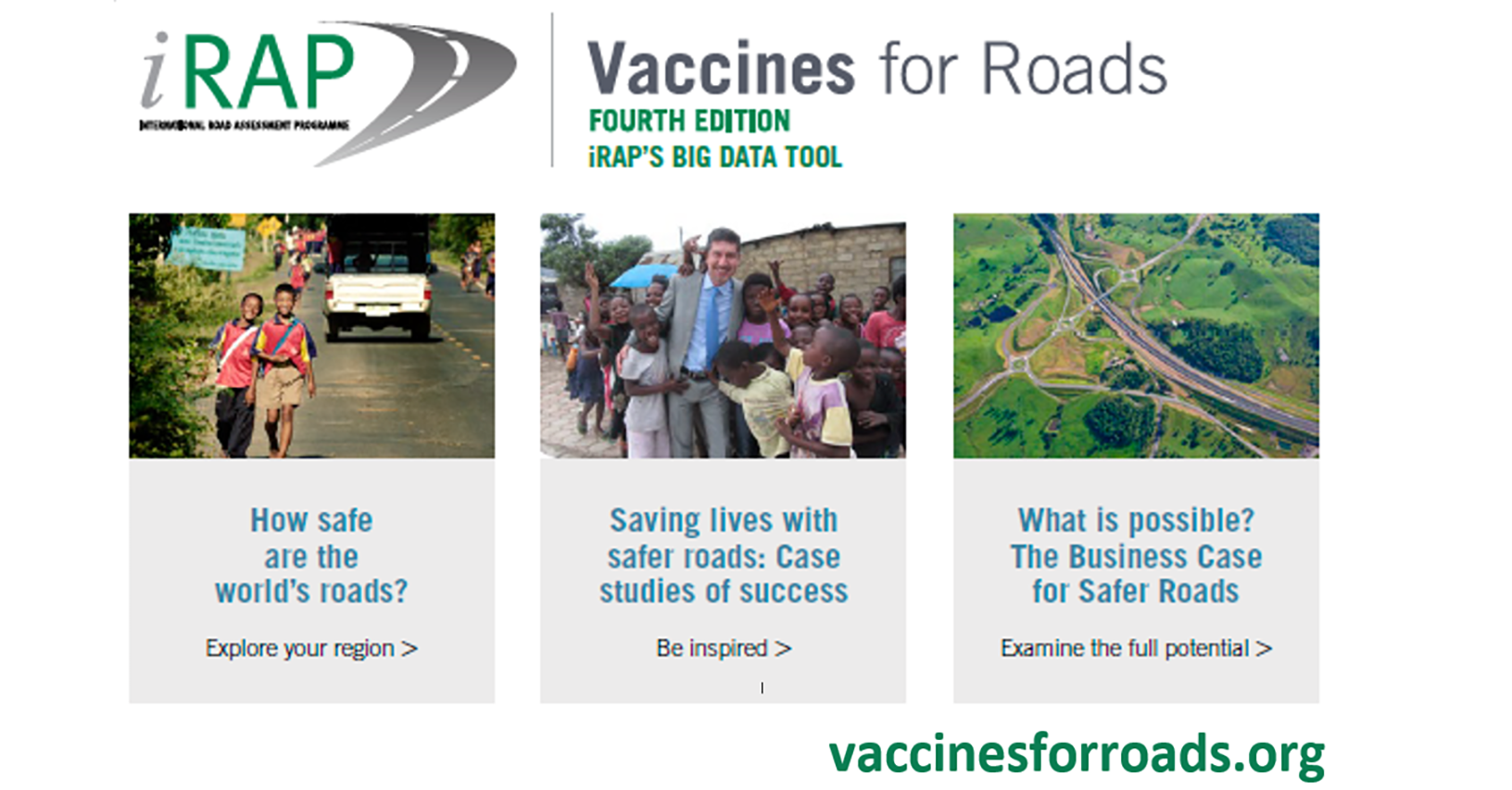iRAP’s Vaccines for Roads new Big Data Tool being launched today at the ITF Summit in Leipzig provides for the first time an interactive health check on how safe the world’s roads are and the road attributes that matter, along with the projected human life and economic savings to be gained if countries meet new UN Global Road Safety Targets.
iRAP CEO Rob McInerney said the tool unlocks insights into the world’s largest road infrastructure safety database collected by iRAP partners around the world and shows that achieving more than 75% of travel on 3-star or better roads by 2030 will save an estimated 467,000 lives every year worldwide and 100,000 million lives and serious injuries over the 20 year life of road treatments.
“Road crashes claim 3,500 lives every day and injure an estimated 100,000 people daily and are one of our greatest public health challenges. With the UN’s announcement last month of 12 Global Road Safety Performance Targets and the new UN Road Safety Trust Fund to support catalytic action worldwide, iRAP’s Vaccines for Roads Big Data Tool provides countries, for the first time, with the metrics and business case they need to act,” Mr McInerney said.
Vaccines for Roads IV draws together three valuable information assets – iRAP’s Big Data Tool, the Business Case for Safer Roads, and case studies of success showing what is truly possible if the world is serious about saving lives.
The Big Data Tool summarises star rating and investment plan data – over 400 million data points – based on 358,000km of roads across 54 countries covering over 700 billion vehicle kilometres of travel every year.
With 1-star roads being the least safe, and 5-star roads being the safest, and 3-star or better being the target for minimum safety standards, key findings include:



“Road deaths and injuries are predictable and preventable. Head-on fatalities occur on undivided roads. Run-off road fatalities occur where the roadsides are unforgiving. Pedestrian fatalities occur where sidewalks are missing, safe crossing facilities don’t exist or speeds are inappropriate. Looking at each attribute can help show how basic features that provide safety for each road user are missing from the world’s roads – and how we can make strategic road infrastructure improvements to save lives,” Mr McInerney said.
“iRAP’s Business Case for Safer Roads shows that $8 of benefits can be achieved for every $1 invested in safer road infrastructure and improved speed management. Targeted safe roads investment by all countries of 0.1-0.2% GDP per year through to 2030 has the potential to save 467,000 lives a year and more than 100 million deaths and injuries over the 20 year life of the treatments,” he said.
“Applying the Step by Step Approach to maximise travel on 3-Star or Better Roads for all road users provides the confidence to invest, the metrics to measure success and the vaccine we need for safer roads.
“We hope this will evolve to be a very useful source of performance tracking data for the UN targets, Sum4All, WHO and Road Safety Observatories as we make progress towards 2030,” Mr McInerney said, “and most importantly help stimulate the action and investment to save lives.”
To view Vaccines for Roads IV and explore the Big Data Tool and case studies of success, visit vaccinesforroads.org
The Vaccines for Roads new Big Data Tool will be launched at 10am local time in iRAP’s Open Stage Cafe Presentation at the ITF Summit in Leipzig, attended by 1,400 world leaders in transport. The Launch will also be livestreamed.


















